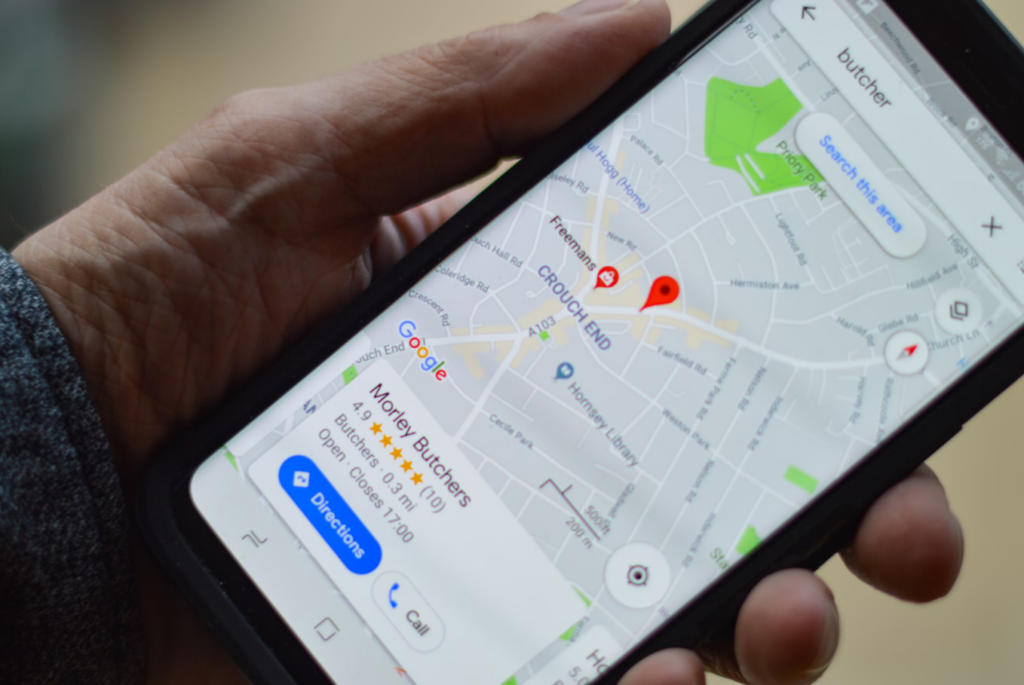
Unlike some local industries, almost everyone looking for an MSP will first look for them online. Does this mean that the location and the local market don’t really matter? Not exactly!
Local SEO ranking is incredibly important, which makes local SEO for MSPs more important than one would originally assume.
While the nature of this work is international, people tend to be closer to local businesses. After all, they share the same work ethic and culture and are in the same time zone (which makes scheduling easier). They also share the same language, which is key for establishing effective communication and minimizing misunderstanding and ambiguity. Additionally, having the option for on-site visits allows businesses to build stronger relationships, gain deeper insights into their clients’ working environments, and address any issues more effectively through direct, personal interaction.
As you can see, this is not even some local patriotism or bias (while both are present to a degree); it’s also about a few key pragmatic advantages. Moreover, you don’t have to be a local business; you just need to establish a strong local presence.
So, now that you understand why, here’s how you can actually build a strong local SEO strategy for your MSP.
Focus on Localized Keywords
Researching keywords that are specific to your city or region makes all the difference when you’re building local SEO. Using general keywords might pull in traffic, but not the kind you’re after. Local clients search for terms like “IT support in Chicago,” not “best IT services.” This is where local SEO for MSPs starts to shine – connecting you to clients actively looking for your services nearby.
Including location-based keywords in your service pages and blogs ensures that search engines connect you to the right audience. For example, if you’re writing about “network security,” adding phrases like “for Boston businesses” or “in Miami” makes your content far more relevant. It’s a small tweak, but it’s central to any MSP local SEO strategy in the experience of SEO veterans behind Support Adventure, an MSP staffing company.
Tools like Google Keyword Planner simplify the process of finding localized search terms. These tools show you exactly what potential clients are searching for in your area. Also, they give you insights into competition levels and opportunities, helping you focus on the most effective keywords without wasting time. Using tools like these aligns with the best SEO practices for MSPs, making your strategy laser-focused.
Long-tail keywords are often overlooked but are perfect for local SEO. Phrases like “affordable MSP in San Diego for small businesses” target very specific searchers. They reduce competition and attract ready-to-hire leads, saving you from chasing vague or unqualified traffic. This focused approach helps optimize the MSP website for local search, boosting your visibility in the most valuable markets.
Optimize Google Business Profile

Claiming and verifying your Google Business Profile (GBP) is a foundational step for local SEO for MSPs. Without it, search engines and potential clients won’t see your business as trustworthy or even know your location. Especially in the industry of MPSs, a verified GBP ensures you appear in local searches, maps, and business listings. In other words, the value of this is more universal than you give it credit for.
Adding accurate business details like your name, address, and a phone number helps search engines and potential clients alike. Consistency across all platforms matters. If your NAP (Name, Address, and Phone Number) isn’t identical on your website, social media, and GBP, it can hurt your MSP local SEO strategy by confusing search engines and lowering your ranking.
Incorporating localized service categories and relevant keywords into your GBP description greatly impacts you. Don’t just list “IT support” – add context like “IT support for small businesses in Seattle.” Small details like these ensure that your profile aligns with the best SEO practices for MSPs and gets noticed by the right audience.
Positive reviews can’t be overlooked. Encourage satisfied clients to leave feedback on your GBP. Reviews aren’t just about reputation – they’re signals to search engines that your business is trusted locally. These small but impactful steps enhance MSP SEO services and boost your overall local presence.
Build High-Quality Local Backlinks

Collaborating with local businesses is a straightforward way to build high-quality backlinks. For example, teaming up with a local accountant or law firm for cross-promotion creates mutual benefits. These connections build authority for your site and strengthen your MSP local SEO strategy in a natural, community-oriented way.
Participating in or sponsoring local events earns you mentions and backlinks from trusted community sources. Whether it’s a tech conference, small business seminar, or charity fundraiser, these opportunities help solidify your reputation locally. Moreover, this step aligns perfectly with local SEO for MSPs, giving you visibility where it matters most.
Submitting your MSP to local directories and citation sites is another effective method. Sites like Yelp, Yellow Pages, or niche-specific MSP directories validate your business. You see, these citations generate backlinks and help optimize the MSP website for local search by signaling relevance to search engines.
Writing guest blogs for locally relevant websites can further push your SEO efforts. With over 600 million active blogs online, finding one shouldn’t be a problem. For example, contributing an article about “cybersecurity trends for small businesses” on a local business blog builds trust. This approach highlights your expertise while following the best SEO practices for MSPs and boosting local authority.
Creating Location-Specific Content
Writing blogs about local tech trends or industry news makes your content relatable and relevant. Address unique challenges facing businesses in your city directly. This hyper-relevant content helps solidify your position as a go-to expert, an essential piece of any MSP local SEO strategy. This is also important when preparing for geographic expansion, not just dominating the local market.
Showcasing case studies of clients in your region is another smart move. Sharing real-world success stories resonates more when the client is local. For example, detailing how you improved IT efficiency for a nearby retail business builds trust and boosts local SEO for MSPs naturally.
Addressing small business challenges specific to your target area makes your content stand out. For instance, businesses in a flood-prone region might worry about data backups, while those in urban centers might focus on network security. Creating content around these local pain points dramatically enhances your SEO potential.
Local events or partnerships are goldmines for content ideas. Covering events like “Tech Meetups in Atlanta” or collaborating with local organizations keeps your content fresh and engaging. This strategy helps optimize the MSP website for local search and ensures you stay top-of-mind for potential clients in the area.
Leverage Local Citations

Consistency in your name, address, and phone number (NAP) across all platforms is key to building trust with each engine. If Google finds discrepancies, your ranking drops. You see, accurate NAP information forms the backbone of any solid MSP local SEO strategy and ensures clarity for both clients and search engines.
Listing your business on niche-specific directories tailored for MSPs gives you an edge. Sites that cater specifically to IT services help validate your credibility. Moreover, they align with local SEO for MSPs by boosting your authority within your niche, making it easier for clients to find you.
Using data aggregators like BrightLocal or Moz ensures your NAP and other business details get distributed accurately. These tools save time and effort while following the best SEO practices for MSPs. You can think of them as amplifiers that help your business appear on more local platforms.
Duplicate or outdated listings can sabotage your efforts. Regularly audit and clean up any incorrect entries. If a client searches for your business and finds old or conflicting details, it hurts trust. Keeping citations tidy helps optimize your MSP website for local search and boosts your visibility in local results.
Wrap Up
Local SEO for MSPs isn’t just about showing up in search results – it’s about becoming the go-to provider in your region. By combining localized keywords, strong content, and high-quality backlinks, you’re not just boosting rankings; you’re building trust with nearby businesses. Also, don’t underestimate the power of tools like Google Business Profile and schema markup to strengthen your strategy. The goal is simple: make your MSP impossible to miss for local clients actively searching for IT solutions.
If you’re ready to transform your MSP with top-tier remote technicians, explore Support Adventure’s MSP Staffing Services today and take the first step towards effortless growth and unparalleled efficiency



0 Comments